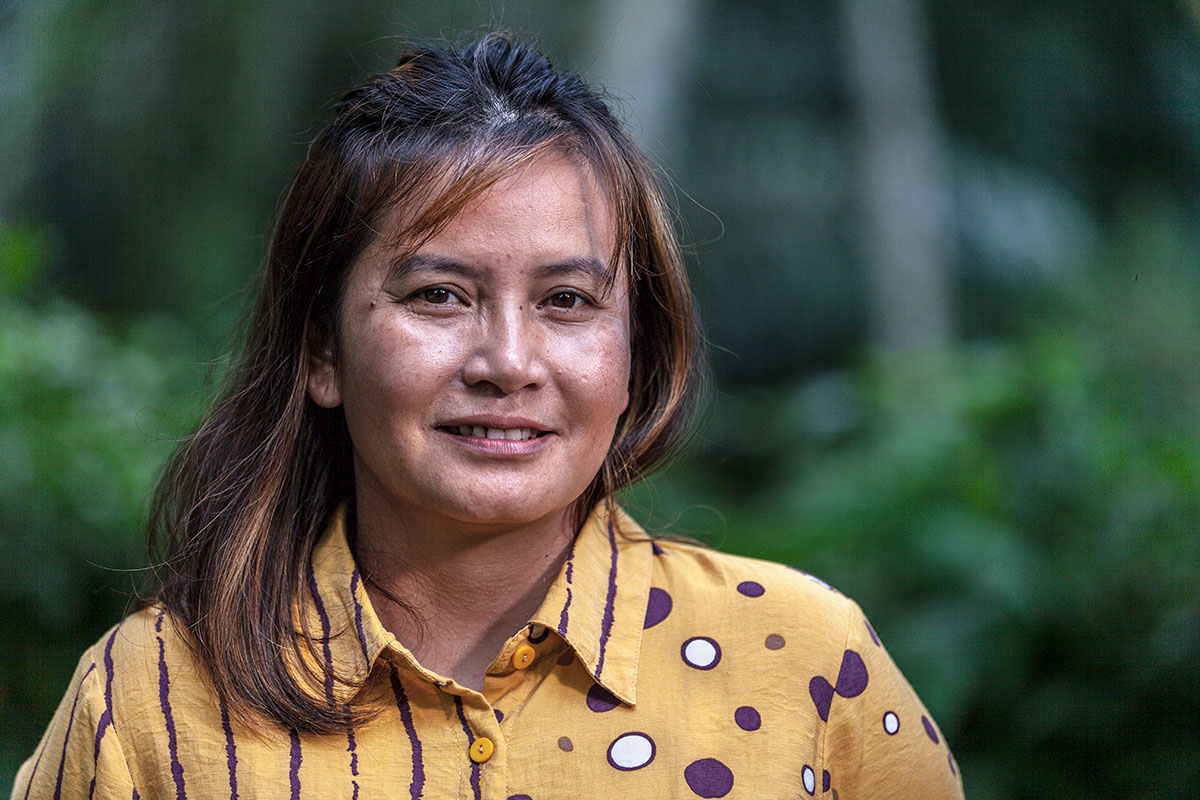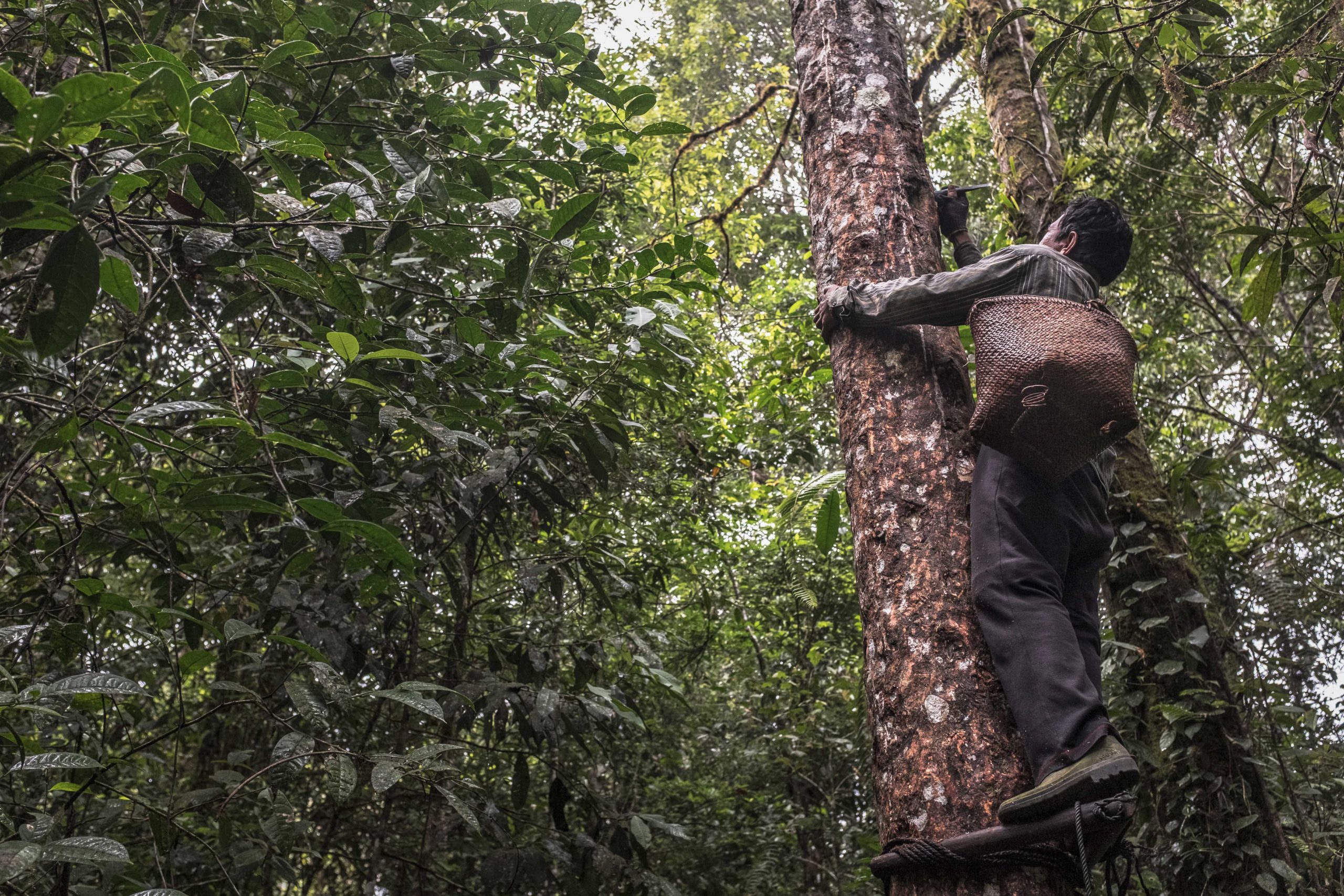The Sumatran forest defender’s tireless organizing against Procter & Gamble-tied deforestation in North Sumatra earns her a “Green Nobel,” but her fight is far from over — she won’t rest until all Batak Toba peoples’ rights are recognized.
Since 1989, the Goldman Environmental Prize has honored environmental activists from each of the six continental regions. Among this year’s honorees is Delima Silalahi of North Sumatra, Indonesia, a champion of North Sumatra’s last intact rainforests and the rights of Batak Toba Indigenous peoples.

Delima Helps Turns Decades of Struggle Into Victory
For decades, Batak Toba Indigenous communities in Sumatra’s Lake Toba region have been fighting to protect their customary forests, which serve as the foundation of their cultural and economic lives. Since the 1980s, their forests have dwindled as Procter & Gamble-tied pulp and paper producer PT. Toba Pulp Lestari (TPL) has cleared large swaths of land for plantation development.
Over the years, Batak Toba peoples have resisted TPL, winning several major victories including TPL’s temporary shutdown between 1998 and 2003. But the most significant victories have only come on the heels of Delima’s local and national organizing. Between 2019 and 2022, Delima was instrumental in helping six Batak communities gain customary forest (hutan adat) recognition — a victory that has spared over 7,000 hectares of Indigenous land from destruction, an area larger than Manhattan.
From Volunteer to Movement Leader
Delima began her advocacy for Batak Toba peoples in 1999, when she joined a Sumatra-based human rights and forest advocacy organization called KSPPM as a volunteer, working with villagers experiencing land grabbing and criminalization while studying TPL’s environmental impacts.
In 2018, Delima became KSPPM’s executive director and co-led several mass mobilizations in the years that followed, including a broad coalition of Indigenous communities and NGOs under the “Shut Down TPL” movement. These activities put significant pressure on Indonesia’s Ministry of Environment and Forestry to recognize the six Batak communities’ customary forest claims.
Delima views these victories and her Goldman Prize as a stepping stone on the way to helping Batak Toba communities overcome their decades-long struggle. With 23 Batak Toba communities and 25,000 hectares of outstanding land claims against TPL, Delima will not stop until TPL and its affiliated corporate group Royal Golden Eagle (RGE) recognize all Batak Toba customary forest rights.

Delima’s Fight Is Just Beginning
Delima’s focus now turns to the Pargamanan-Bintang Maria people, a Batak Toba community still fighting for customary forest recognition. Nearly 40% of Pargamanan customary forests are under TPL’s concession, an area at risk of deforestation indefinitely. Their forests include valuable Benzoin incense trees, which are the foundation of the local economy.
On May 1st, Delima and delegates from North Sumatra will take their fight directly to Procter & Gamble’s doorstep in Cincinnati. P&G has the power to pressure TPL’s affiliated corporate group and longtime supplier, Royal Golden Eagle, to end its operations in Batak Toba customary forests once and for all — and to keep North Sumatra’s forests standing.
Help Delima Keep Batak Toba Forests Standing
Procter & Gamble can help put an end to deforestation in North Sumatra by respecting Batak Toba rights.












